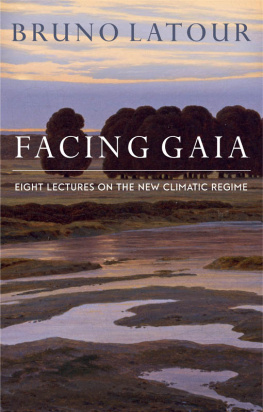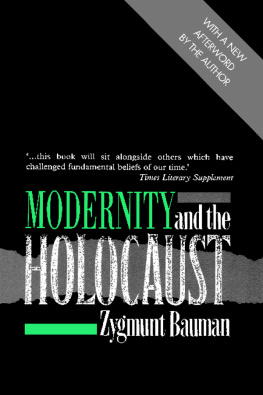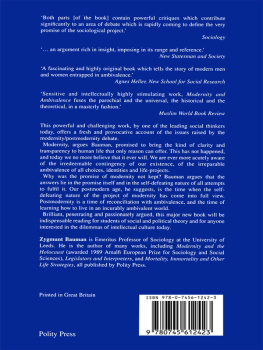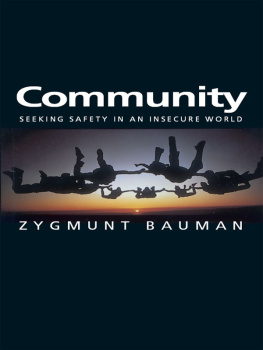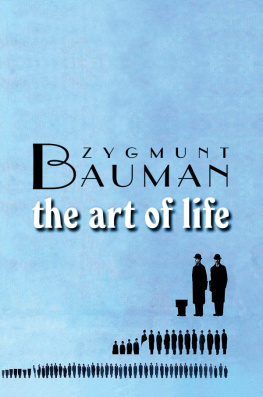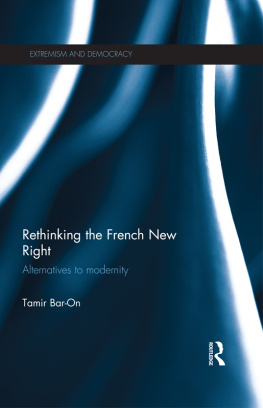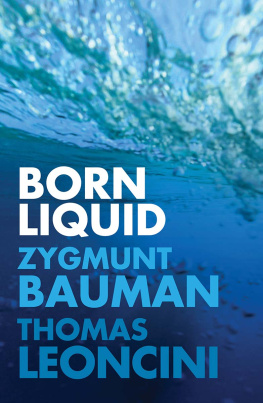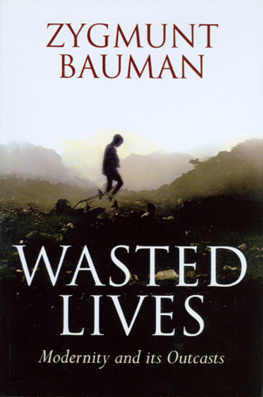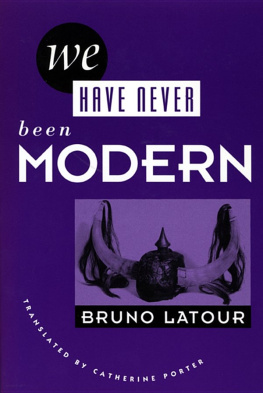Bauman, Elias and Latour on Modernity and Its Alternatives
Bauman, Elias and Latour on Modernity and Its Alternatives
Three Contemporary Sociological Theorists on Modernity and Other Options
Sandro Segre
Anthem Press
An imprint of Wimbledon Publishing Company
www.anthempress.com
This edition first published in UK and USA 2020
by ANTHEM PRESS
7576 Blackfriars Road, London SE1 8HA, UK
or PO Box 9779, London SW19 7ZG, UK
and
244 Madison Ave #116, New York, NY 10016, USA
Copyright Sandro Segre 2020
The author asserts the moral right to be identified as the author of this work.
All rights reserved. Without limiting the rights under copyright reserved above, no part of this publication may be reproduced, stored or introduced into a retrieval system, or transmitted, in any form or by any means (electronic, mechanical, photocopying, recording or otherwise), without the prior written permission of both the copyright owner and the above publisher of this book.
British Library Cataloguing-in-Publication Data
A catalogue record for this book is available from the British Library.
ISBN-13: 978-1-78527-304-9 (Hbk)
ISBN-10: 1-78527-304-3 (Hbk)
This title is also available as an e-book.
CONTENTS
This book will reconstruct and compare the thought of three contemporary sociologists: Bauman, Elias and Latour. All these three sociologists enjoy great consideration. They have also been subject to critical scrutiny, however, as the substantial secondary literature on them indicates. Their sociological theories and conceptual apparatuses are quite different, but they all deal in one way or another with the themes of modernity and its alternatives. A juxtaposition of these texts may point to distinct definitions of modernity and its alternatives in contemporary sociological theory. The notions of modernity and other related notions such as postmodernity and late modernity are ambiguous, and hence difficult to define. They have been in fact differently interpreted and intended, and the inception of modernity has been inconsistently indicated (cf. Sica ). This holds not only for all the major representatives of classical sociology, but also for the most reputed contemporary sociologists.
Bauman, Elias and Latour have been selected here as they have contributedeach of them in his own wayto a redefinition and a new appraisal of modernity, and have pointed to its ambivalent consequences. Other major social theorists have also explored this subject, which may be accordingly considered a central sociological theme. While this work certainly deals with sociological theory, it focuses only on this particular theme as discussed by these three authors. For comparative purposes, however, the contributions of Giddens and Foucault should be also presented here, albeit briefly. For Giddens, the main problem with the concept of modernity is that it is overgeneralized (Giddens and Sutton ). By contrast, the discursive formations specific to the modern age are Foucaults central theme. All these authors have then grappled with the theme of modernity, but they have significantly differed in how they have conceived of this notion, and how they have envisaged some of its possible alternatives.
References
Giddens A. 1996. In Defence of Sociology. Cambridge: Polity Press.
Giddens A., and Sutton Ph. W. 2014. Essential Concepts in Sociology. Cambridge: Polity.
Sica A. 2005. Modernity. In G. Ritzer (ed.), pp. 505511. Encyclopedia of Social Theory. London: Sage.
Introductory Observations
Zygmunt Bauman was an influential philosopher and sociologist who lived in England since 1971, after having left his native Poland in 1968 and taught at the University of Tel Aviv for the subsequent three years. Bauman was Professor of Sociology at the University of Leeds between 1992 and 2000. Few would probably dispute that Bauman is one of the most influential contemporary sociologists (Ray : 51). He was a prolific writer even before his retirement and remained prolific thereafter, as indicated by the great number of books he subsequently published. Bauman was the single author in most of them, but he authored a few works in the form of interviews and conversations, which he has held with fellow sociologists or journalists. Bauman dealt with a variety of sociological subjects related to the themes of modernity and postmodernity. Here, attention will be paid first to his vision of sociology, namely, to its subject matter and epistemology, to the ethical reasons for his concern with this discipline, and to what sociology can and ought to achieve in his judgment. Some substantive themes, on which Bauman also focused, will be then dealt with. They are democracy and freedom; globalization and its ethos; liquid sociology and liquid life; modernity and postmodernity, the related themes of ambivalence, identity, consumerist culture, the holocaust, the social and moral consequences of inequality, and the role of education in the contemporary age. In the final section, some secondary literature on Baumans oeuvre will be briefly presented.
Baumans Vision of Sociology
Bauman has endeavored to clarify his conception of the subject matter and task of sociology in a series of conversations he held between 2012 and 2013 with the sociologists Hviid Jacobsen and Tester. Some of these conversations were subsequently published as a book titled What Use Is Sociology (Bauman et al. : 105). This central concern involves blurring the boundaries that separate sociology from different genres, such as art, film and literature.
Bauman mentions in this regard several prominent writers who can help readers of sociological texts find the truth of their own way of being-in-the world, and he is not therefore overly concerned with conventional research methods when he practices sociology. Bauman recommends what he calls a respectful attitude to the novelists work; for this attitude only makes it possible to oppose a tendency, which he deplores, to a partial and impoverished understanding of human reality by focusing on the objective and impersonal character of events rather than on their subjective, spiritual and emotional character (Jacobsen : 1719).
It concerned itself with the conditions of human obedience and conformity. As a consequence, the subject matter of conventional sociology concerns humans stripped of their subjectivity of people having an identity, and who can therefore make choices. By doing so, conventional sociology presupposes that a neat separation can and should be made between the subject and the sociological research object. Baumans own conception of sociologys task is quite different. Sociology is, in his view, a critical activity. It pursues a perpetually unfinished critique of taken-for-granted knowledge and common sense. This activity is conducted in conjunction with self-criticism and the task of de-objectifying the social world and the mind or perceptions of its inhabitants. Baumans ultimate goal is a kind of sociology that endeavors to re-establish itself as cultural politics in the service of human freedom. This kind of sociology requires unconventional research methods, of which the systematic use of literary sources is an example (Bauman : 1516).
Another example is the great relevance Bauman imputes to metaphors as sociological tools. As he has stated in an interview, metaphors are the : 213), and to which we shall return later.




